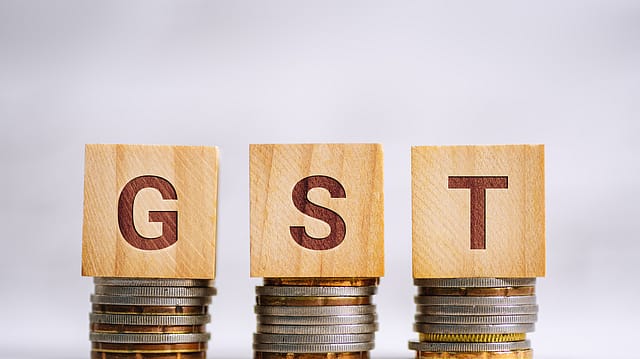GST reform to stimulate consumption but slash govt revenues: Moody’s
ADVERTISEMENT

The recently announced Goods and Services Tax (GST) reforms will likely boost private consumption but the loss of tax revenue will likely limit progress in fiscal consolidation and debt reduction, according to ratings agency Moody’s.
The government overhauled the goods and services tax (GST) framework on September 3 by rationalising indirect taxes from a four-tier structure to two key rates while introducing a new 40% rate for luxury and discretionary items, including larger vehicles, casinos, betting, tobacco, sweetened and carbonated beverages, and online gaming.
“A decline in India's effective GST rates will likely boost private consumption and support economic growth at a time that the country faces external pressures from higher US tariffs,” Moody’s said in a report.
“This simplified tax structure will improve affordability and therefore stimulate consumer demand,” the report said.
Moody’s expects tax savings from the GST revisions to be largely passed on to consumers through lower prices, strengthening private consumption. “Lower prices will also help keep inflation at bay,” it said.
Retail inflation fell to 1.55% in July 2025 from a high of 7.44% in July 2023, staying below the Reserve Bank of India's target of 4%.
Although the lower rates will support consumption, Moody’s does not expect marginal additions to tax revenue from more robust domestic activity to offset the strain on tax revenue.
Moody’s, however, pointed out that there will be further mitigation from additional revenue generated from the introduction of the higher 40% tax rate on luxury and discretionary goods, as well as the accompanying simplification of GST governance aimed at improving compliance and reducing classification disputes.
With the GST reform, the government expects net foregone revenue of $5.4 billion this fiscal. “Given the expansion of the economy over the past two years, which implies a correspondingly larger volume of goods subject to GST, foregone revenue is likely to be higher than government estimates. The strain will be even more pronounced in the coming years because the new tax structure will be effective over the course of a full year, rather than the remaining six months of the current fiscal year,” Moody’s noted.
The GST reforms, along with the increase in the personal-income threshold for paying income taxes, will erode revenue buoyancy, Moody’s said. “Through the first four months of the fiscal year, gross tax revenue at the central government level has risen by only 0.8% year on year, much slower than the 21.3% increase over the same period in fiscal 2024-25 and the 8.8% rise in nominal GDP recorded in the April-June quarter this year.”
“At the same time, central government expenditure grew 20.2%, contributing to a marked widening of the central government's deficit to ₹4.7 lakh crore, compared with ₹2.8 lakh crore in the first four months of the previous fiscal year,” it said, adding that it expects spending growth to slow over the next two quarters.